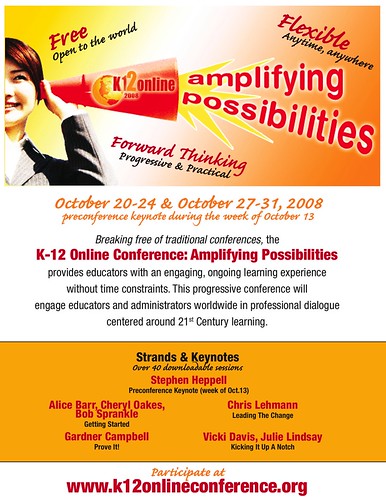Dr. Richard Schwier and Dr. Jay Wilson were our guests in EC&I 831 on the night of January 13, 2009. They gave a wonderfully entertaining and informative presentation on the history of educational technology before the introduction of the computer. Below is the captured video of the presentation, taken from Elluminate. The full Elluminate session is also available here.
A couple of my favourite insights voiced in the comments during this presentation were (a) where did teachers get the time to do things this way?, and (b) the idea that teachers often hoarded the resources they created. The first point is quite interesting as I find it still the most frequent complaint from teachers using technology today. The second point interests me as I feel that the hoarding mentality may have been necessary at an earlier time in history, but I am not sure education in general has really adjusted to this perceived “age of abundance” in relation to resources and information. Or, perhaps I am just being naive.
Also related, do check out Dr. Schwier’s presentation from last year on the history of educational technology where he takes a different approach, and focuses on the people of educational technology vs. the tools.






